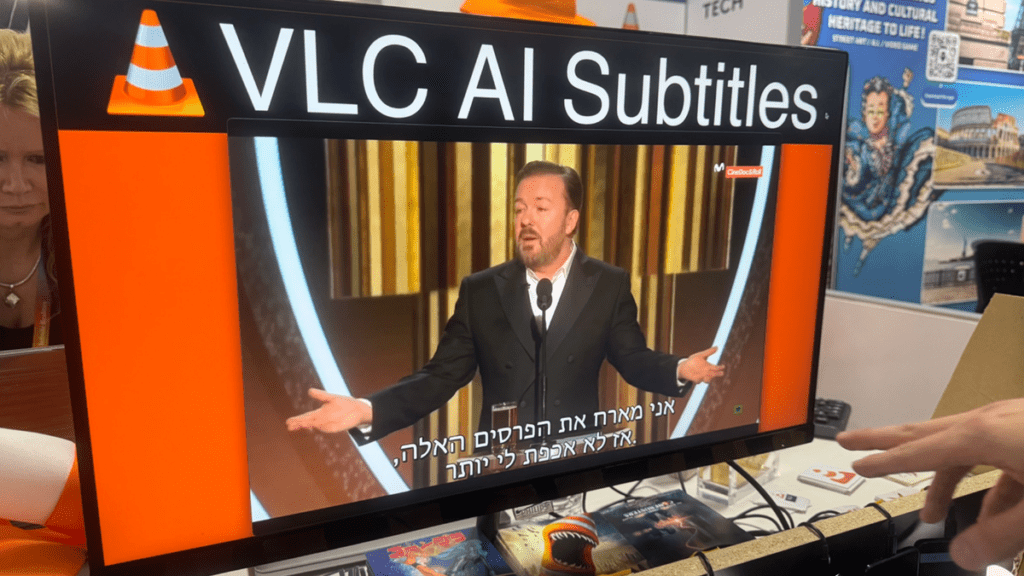AI will start making videos in the popular VLC media player more accessible, the company announced at CES. VLC is adding a new feature that uses AI to generate subtitles and translations in real time. No more searching through suspicious subtitle databases or syncing files. Instead, VLC’s AI will transcribe the audio and display it while the video plays, and will even translate it into over 100 languages.
It’s a notable change from the current way of adding subtitles. If your video didn’t come with built-in subtitles, you had to search for the correct file online. VLC’s new AI-powered subtitles aim to make that process obsolete. VLC is using open source AI models for the feature and said everything will work on your device, meaning you won’t need to be online or send any data about what you’re watching.
Of course, AI doesn’t just transcribe; It is also translated. Let’s say you’re watching a Korean drama and you want to share it with a friend who doesn’t speak the language. VLC’s AI can generate subtitles in English, Spanish, or one of dozens of other languages.
Automatic VLC subtitle generation and translation based on local and open source AI models that run on your machine, work offline, and support numerous languages! You can find a demo at our #CES2025 booth in Eureka Park. pic.twitter.com/UVmgT6K4dsJanuary 8, 2025
bad communication
VLC’s AI plans are not a perfect solution, of course. Any AI transcription or translation can fall victim to confusion, poor transcription, and awkward translation. Accents, fast speech, and other elements can make subtitles more of a hurdle than you’d like. The feature is also likely to require a lot of processing power. Real-time transcription and translation are no small tasks, and older devices may struggle to keep up. It might be time for an upgrade if you’re still running VLC on a pre-HD era laptop.
Still, the potential is huge for more than just casual viewers. People who are hard of hearing or learning a new language will definitely benefit from immediate and (mostly) accurate transcription and translation. It could be a real help for students, international travelers, or others who want or need text to accompany their viewing.
While VLC isn’t the only one leveraging AI for subtitles, it stands out in terms of ease of use and practicality. Avoiding the need for an internet connection or a subscription service makes it cheaper and more private than other options. It may not always be perfect, but for most users, “good enough” probably seems like a revelation.




